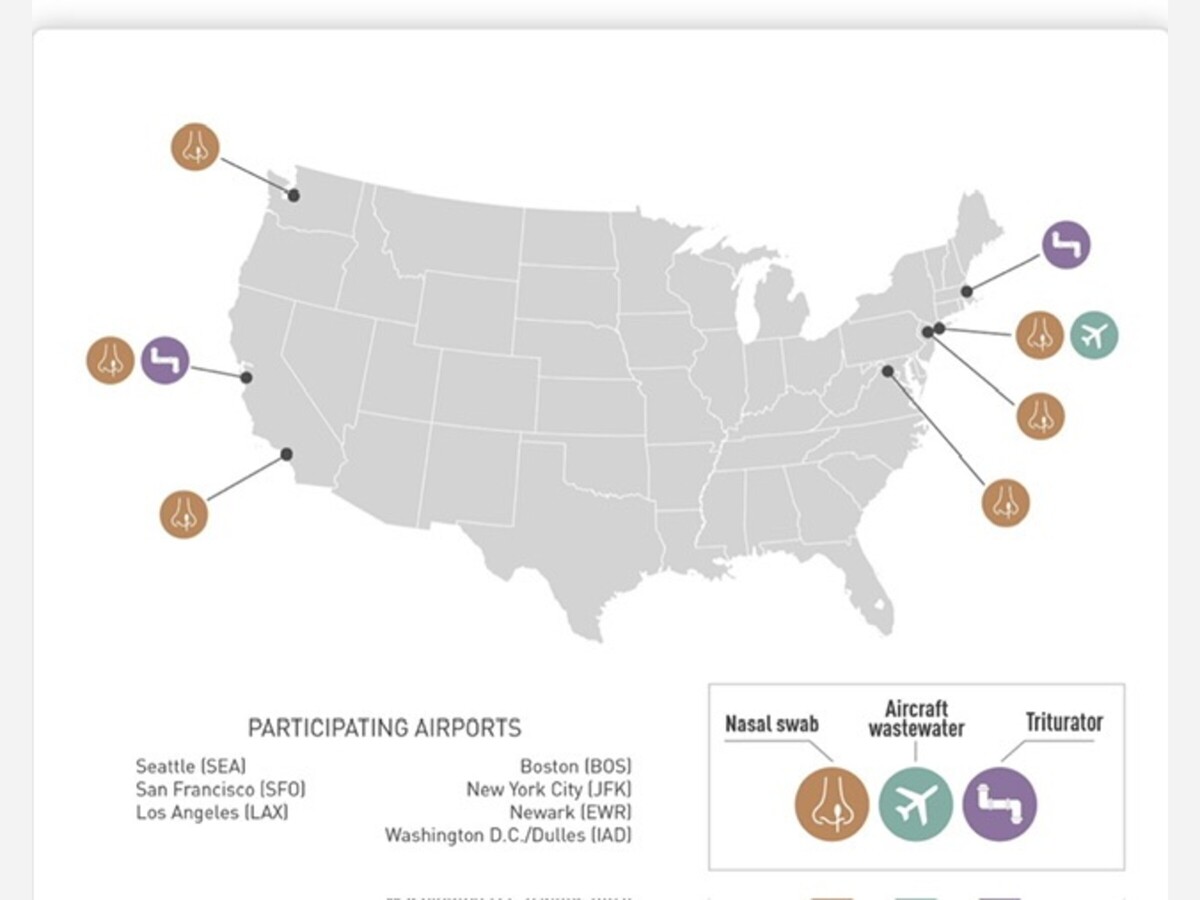Image

The U.S. Centers for Disease Control and Prevention (CDC) said it was expanding testing of samples collected from international air travelers beyond COVID-19, to include flu and respiratory synctial virus (RSV) beginning November.
U.S. airports are visited by more than 1 billion travelers each year.
Travelers are an important population to consider when tracking new and emerging infectious diseases because they move from place to place quickly and can spread pathogens across borders.
Strategic bio surveillance at airports enables timely detection of SARS-CoV-2 variants and other pathogens of public health importance.
The agency's traveler-based genomic surveillance program, or TGS, began in 2021 to help with early detection of new SARS-CoV-2 variants.
CDC conducts voluntary nasal swabbing and airport wastewater sampling as part of it.
The program includes seven participating international airports across the country - Los Angeles, New York's John F. Kennedy, San Francisco, Boston Logan, Washington Dulles, Seattle and Newark.
"Our focus is always on airports that are international hubs and have flights coming in from a broad array of international locations so we can get a picture of what's going on globally and detect concerning strains early," said Cindy Friedman Chief of CDC's Travelers' Health Branch.
Of the 6,000 nasal swab samples collected every week under the program, about 2,000 are tested for respiratory diseases, Friedman said, adding that nasal swabs from two of seven participating airports have been tested since October.
Wastewater sampling from some of the airports began in November, Friedman added without providing details of the locations.
The pilot expansion, which will last for several months, comes ahead of the U.S. winter months when respiratory-disease causing viruses usually circulate more heavily.
CDC has warned that it expects hospitalizations from COVID-19, RSV infections and flu this year to be similar to last year's numbers, higher than the pre-pandemic levels.
TGS is a public-private partnership between the health agency, and the expansion project is being implemented by biotech company Ginkgo Bioworks and wellness holding company XWELL.
After a successful proof-of-concept project in September 2021, the program expanded and currently operates at six major US international airports.